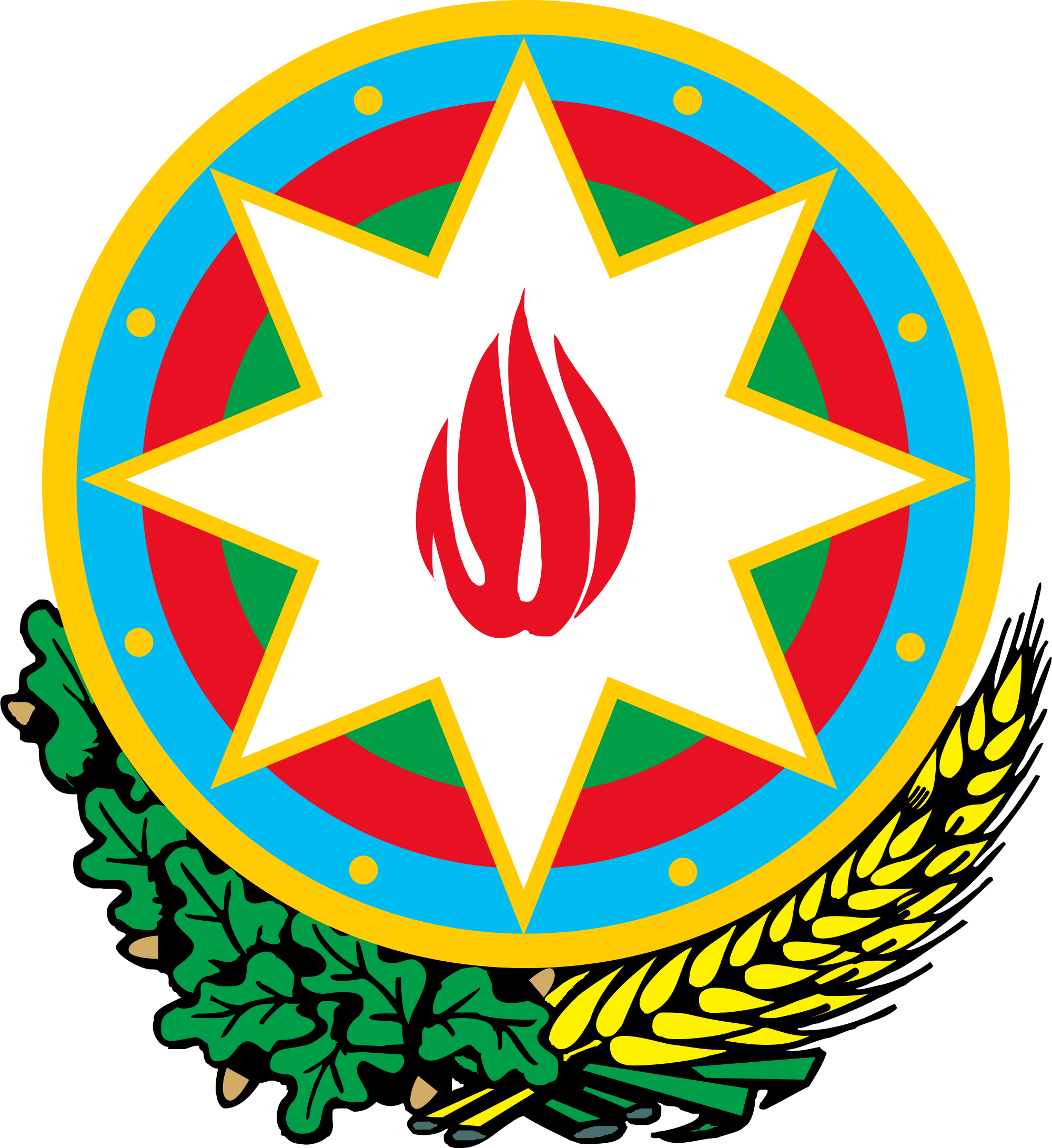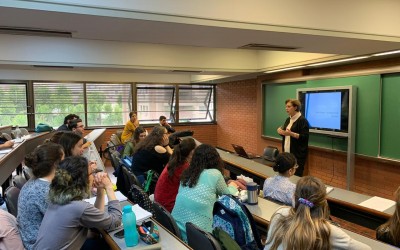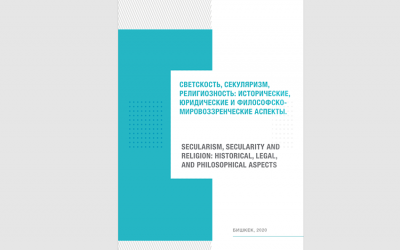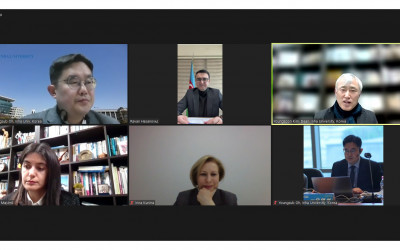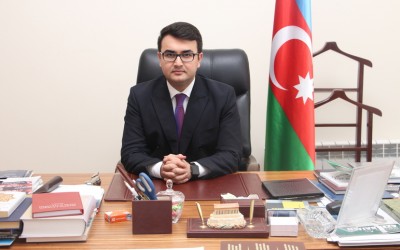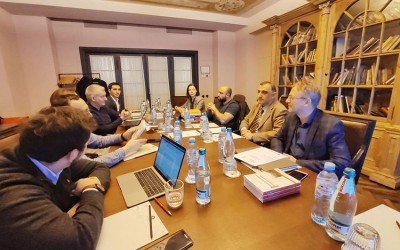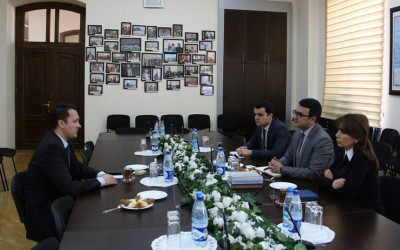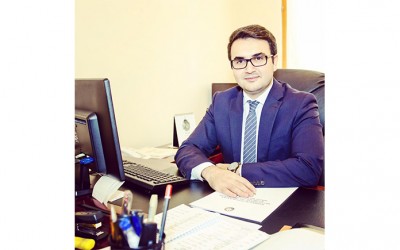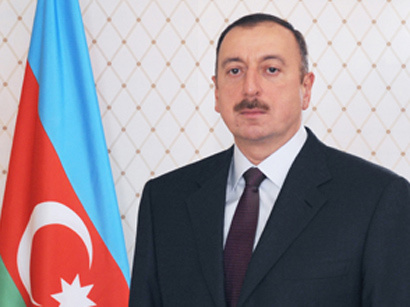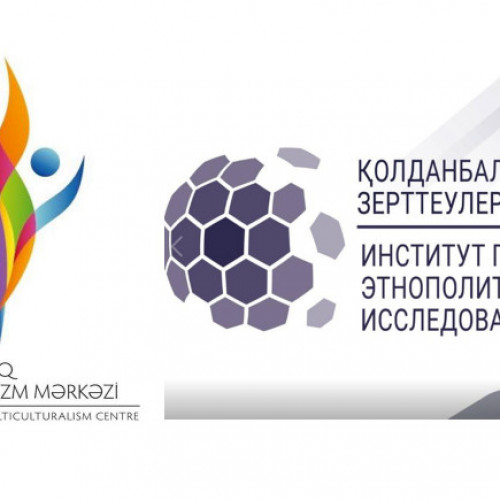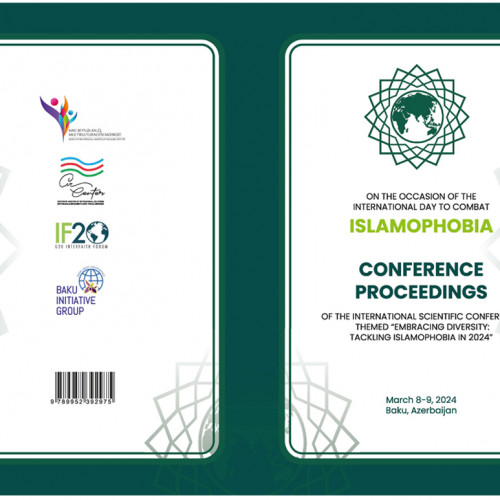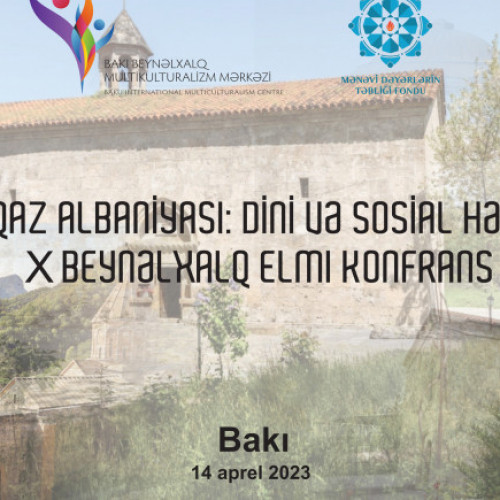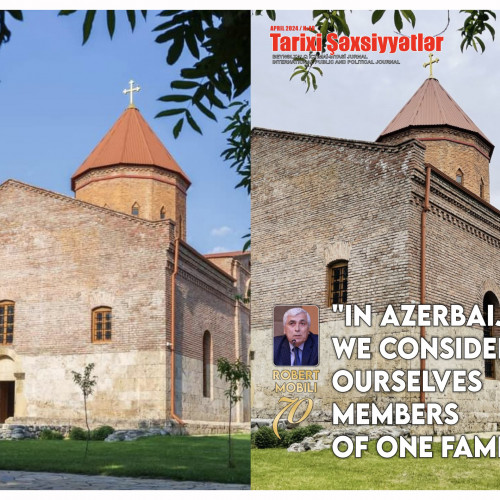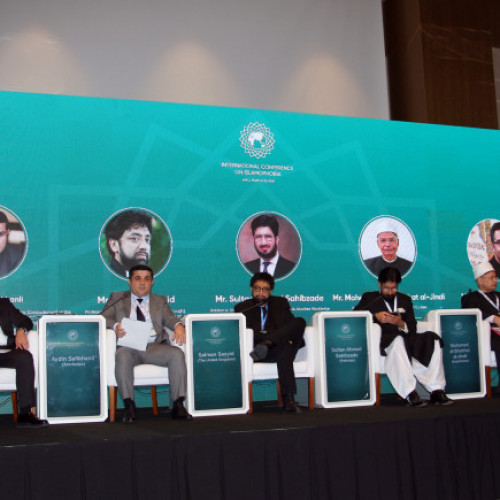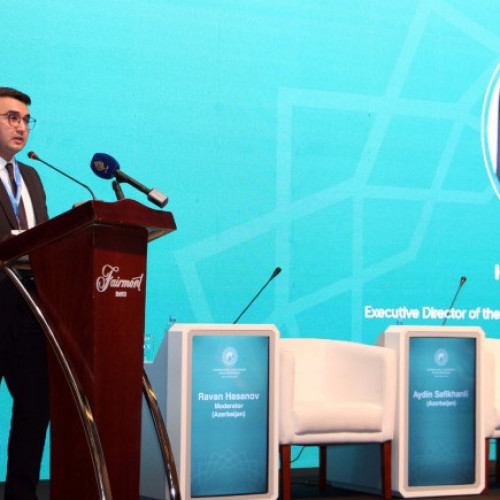Pluralistic Azerbaijan: A History Of Peaceful Coexistence
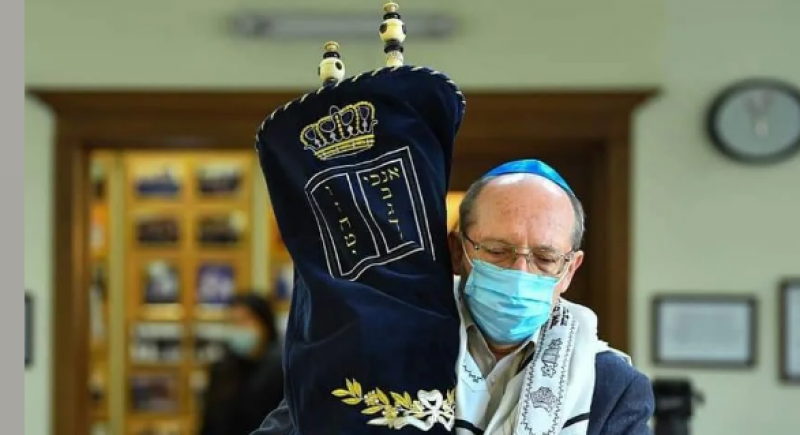
Israeli President Reuven Rivlin once stated, “A multicultural society does not reject the culture of the other but is prepared to listen, to see, to dialogue and, in the final analysis, to possibly accept the other’s culture without compromising its own.”
This right here describes how multiculturalism and pluralism is practiced in Azerbaijani society today. In fact, Azerbaijan is one of the few successful models for a pluralistic multicultural society in the world.
In a recent webinar sponsored by Republic Underground on “the History of Religious Pluralism in Azerbaijan,” Agil Shironov, the rector of the Azerbaijan Institute of Theology, explained why Azerbaijan is different from most other countries in the Muslim world: “Historically, there has not been any violence between Shias and Sunnis in Azerbaijan. There are families that marry among each other. Many Sunnis and Shias got joint Friday prayers in Azerbaijan. We have a very good relationship between Shias and Sunnis. We have one Muslim office. It does not represent only Shias. It represents Shias and Sunnis, who work together.”
Furthermore, just as Shias and Sunnis coexist in Azerbaijan, so do members of other faiths. According to Shironov, approximately 65% of Azerbaijan is Shia, while 30-40% of Azerbaijan is Sunni. He claims that the main theological Sunni schools practiced in Azerbaijan are the Hanafi and Shafi’i Schools, and that Wahhabism and other extremist schools of Islamic thought are not popular in Azerbaijan.
However, he noted that Sufism, which is a moderate school of Islamic thought, is very influential in Azerbaijan and this is one of the driving forces behind religious pluralism in the South Caucasus country:
“Azerbaijani Muslims are tolerant towards each other because of the tradition of Sufism. Most of Azerbaijan is Sufi. In the Sufi tradition, what is important is to respect what is created. This is the main road to respect all people and all creation for the sake of God.”
The great Sufi poet Rumi once stated: “Muslims and Christians, Jews and Zoroastrians, the faces of them are all turned towards the mighty sultan.” Shironov believes that Sufism has taught Azerbaijanis that they cannot limit themselves to one belief: “True knowledge can only be achieved by covering all manifestations of the ultimate truth.”
Archbishop Elnur Afandiyev, who represents the Russian Orthodox Church in Azerbaijan, concurred that members of all faiths have been treated with respect and dignity in Azerbaijan: “Historically, Azerbaijan has been a place of residence for Muslims, Christians, Jews and Zoroastrians.”
Afandiyev recounted that the Caucasian Albanian influence over Azerbaijan’s Christian community dates back to the 1st century when Albanians founded the churches in Azerbaijan. In the villages with the early Albanian inspiration, the Udis were a main ethnic group that presided over the Albanian Christian church: “From the fourth till the seventh century, the state religion was Christianity.”
The Albanian church had a hard time, and in the 19th century, the Albanian church was mostly Armenized by the Armenian church. The Udis did not want to be part of the Armenian church and migrated to the center of Azerbaijan, but as Afandiyev explained, “Now, Azerbaijan is a modern, secular state. Representatives of many faiths live in peace and brotherhood. 96 percent is Muslim, and the rest are Christian, Jewish, etc. The Christian community is not only Orthodox. It is also Catholic and Protestant. We also have a Baha’i community.”
“There is no discrimination for us,” he continued. “The Orthodox Christians have rights and privileges provided by the constitution. Christians are represented by all the spheres in the society. We live in our native country freely.”
Rabbi Zamir Isayev, the chairman of the Georgian Jewish Community, agreed with Archbishop Afandiyev: “This place is dominated by mutual understanding. Otherwise, it is impossible to have any history of multiculturalism. The Jewish community has lived here for many centuries. The Mountain Jews, who speak a dialect of Persian, are the biggest community, followed by Ashkenazi Jews and Georgian Jews. We also have a smaller community of Kurdish Jews.”
“It is the only place that has a Jewish town outside of Israel,” the Rabbi pointed out, referring to how “Muslims saved an old Jewish cemetery from complete destruction during the Soviet period. Today, it was completely restored by the government of Azerbaijan.”
“If we look at the history of the Jewish community of Azerbaijan, you can see multiculturalism in all the periods. Today, we know it. We feel it. The Jewish people of Azerbaijan work in every industry, serve in the army, etc. About 30,000 Jews live in Azerbaijan. All of the communities get financial aid from the government.”
Aside from the popularity of Sufism, Shironov emphasized that the other factor that made Azerbaijan a successful example for pluralism in the Muslim world is the secular nature of the Azerbaijani state.
“The Azerbaijan democratic republic was the first to establish secularism. They established a national charter, which gave all civil and political rights. The modern Azerbaijani state is also based on this and gives its citizens the right to practice their religion freely… The secular nature of the Azerbaijani state is one of the reasons for our success. Azerbaijan was the first country in the Islamic world that adopted secularism.”
Although most Azerbaijanis practice Shia Islam, they do not view their faith in the same manner that most people do in the Islamic Republic of Iran, which is also Shia, said Shironov: “The difference is not their faith but their attitude towards politics. The majority of Azerbaijani Shias support a secular state. Most Azerbaijani Muslims don’t support Waliyet El Faqih, the guiding principle of the Islamic Republic of Iran.”
Rabbi Isayev added that this pluralistic atmosphere also extends to the Jewish community: “The synagogues are open 24 hours a day, seven days per week. No security camera. Nothing. The Mountain Jews have a big synagogue in Baku. This synagogue was built by the government. Also, the Ashkenazi Jews go to the Mountain Jews synagogue. In the Georgian Jews synagogue, we have Mountain Jews, Ashkenazi Jews, etc.”
The Rabbi also mentioned that while there is also a Jewish community in Turkey and the traditions are similar, “the mentality is not the same. We speak Azeri. They speak Turkish. We speak Jewry, a dialect of Persian. They speak Ladino. But when I visit the Istanbul Jewish community, I see that the mentality is not the same. We have more of an Azerbaijani mentality.”
He also made note of Jews from neighboring Iran, stating “In the period before the pandemic, there were a lot of Iranian Jewish tourists who came to Baku and visited the synagogues, saw that they were open and asked how they lived here. When we compare it to how they are living in Iran, we also see that the mentality is not the same.”
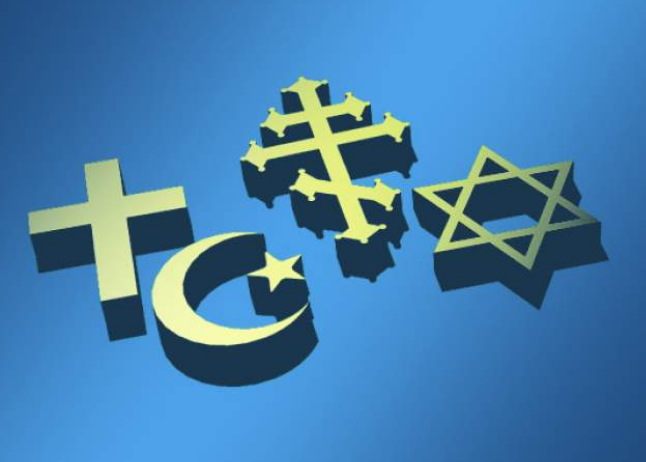
Of course, during the Soviet period, Azerbaijan was not as pluralistic as it is today. In the webinar hosted by Republic Underground, it was emphasized that members of all faiths suffered during the Soviet period and that the Soviets brutally crushed mosques, synagogues, and churches.
Nevertheless, Rabbi Isayev stressed that Azerbaijan was still better than other places in the Soviet Union: “Compared to other places in the Soviet Union, in Azerbaijan, we had a particular freedom. For some religious traditions such as brit milah and other things, we are living in a Muslim place. In Moscow, if a rabbi gave a brit milah, that rabbi and the parents could go to Siberia for 10 years during the Soviet period. But in Azerbaijan, we did not have such a problem.”
Since the Soviet Union collapsed, the modern Azerbaijani state has done its utmost to rebuild all the synagogues, churches, and mosques that the Soviets had shut down, viewing their re-establishment to be a source of pride.
In fact, Azerbaijan, a Muslim country, has even financed the restoration of Christian churches across the world to showcase how much their nation values multiculturalism and pluralism. As the respected Archbishop reminded, “Muslims, Christians and Jewish people help each other in Azerbaijan. In 1967, Michael Church was destroyed in a fire. Many people including Muslims gave donations to rebuild the church. The Muslims said it was bad for the city that a house of G_d was destroyed in the fire.”
By Rachel Avraham


